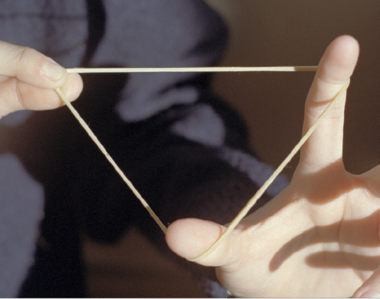Workshop Federico Clavarino: Difference between revisions
m (→Timeline) |
m (→Timeline) |
||
| Line 32: | Line 32: | ||
We are going to talk about art in the context of entrapment, and vice versa. Are all artworks traps, in one way or another? Conversely, are all traps works of art? Participants will have to think about an exhibition as a site of capture. | We are going to talk about art in the context of entrapment, and vice versa. Are all artworks traps, in one way or another? Conversely, are all traps works of art? Participants will have to think about an exhibition as a site of capture. | ||
''' | '''Wednesday 23/06 – The Book of Traps''' | ||
The final session is going to be entirely devoted to the editing and design of an online publication collecting all of the results (thoughts, works, debates, etc) of the workshop.<br> | The final session is going to be entirely devoted to the editing and design of an online publication collecting all of the results (thoughts, works, debates, etc) of the workshop.<br> | ||
Latest revision as of 10:33, 3 June 2021
Workshop - "Traps" led by Federico Clavarino
We could look at traps as knottings of relationships that acquire a material form. If this is true, then there might not be much difference between traps and works of art.
Entrapment often relies on mimetic strategies and delay mechanisms: traps transform their environment by altering relations of space and time. Traps also often stand in for aspects of both their creator and their prey. All of this brings them close to representations, and thus to images. Images themselves can also be seen as traps, traps for our eyes, and imaging technologies such as photography might be looked at as instances of entrapment.
This workshop is part of Clavarino's ongoing research project on photography and entrapment. The host will invite the students to participate in it by sharing some of his thoughts with them and by asking them to respond to a practical assignment during each of the sessions. Students will also work on a digital publication at the end of the workshop, that is going to bring together all of the results and the thoughts that will have emerged.
Timeline
Tuesday 15/06 – The Spider and the Fly
This will be an introduction to entrapment in the natural world, followed by an exercise in observation.
Wednesday 16/06 – Trap-making
We will look at a few examples of the making of traps as technology and ritual. This will be followed by an exercise in trap-making.
Thursday 17/06 – Traps for the Eye
We will look at instances of “trompe l’œil” in Renaissance and Baroque painting and architecture. An exercise in the fabrication of meta-imagery will follow.
Monday 21/06 – Photography and Entrapment
We will try to answer the question: “how does the practice of photographing relate to entrapment?” This session’s task will involve the design (and possibly the enactment) of a photographic situation.
Tuesday 22/06 – Artworks as Traps
We are going to talk about art in the context of entrapment, and vice versa. Are all artworks traps, in one way or another? Conversely, are all traps works of art? Participants will have to think about an exhibition as a site of capture.
Wednesday 23/06 – The Book of Traps
The final session is going to be entirely devoted to the editing and design of an online publication collecting all of the results (thoughts, works, debates, etc) of the workshop.
About Federico Clavarino
Federico Clavarino (1984, It) is a visual artist and educator. He studied creative writing at Alessandro Baricco’s Scuola Holden in Turin and documentary photography at Fosi Vegue’s BlankPaper Escuela in Madrid. He also holds a Master of Research degree from the Royal College of Art in London. He has published six books so far and his works have been exhibited all over Europe, in the official programme of festivals, galleries and museums. He taught at BlankPaper Escuela from 2012 to 2017, and currently lectures and gives workshops internationally, collaborating with museums, schools and universities.

